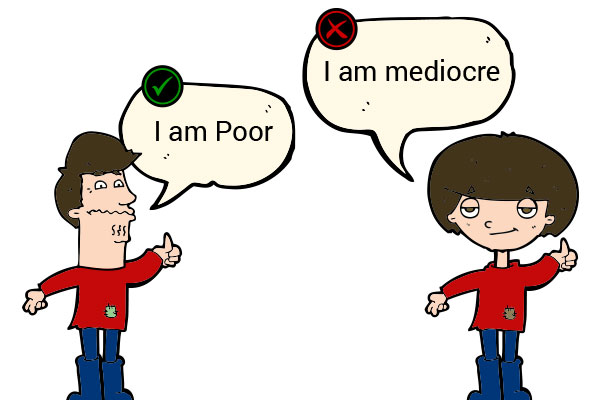
IELTS Exam | Upgrade Your Knowledge of Lexical Resource
Lexical Resource is one of the four IELTS marking criteria that focuses on the range of vocabulary a candidate uses. Lexical Resource is specifically used in 2 modules; writing and speaking. These two modules are productive modules because you need to generate your thoughts and ideas. It is challenging to generate vocabulary to create any thought. The more you use a wider range of vocabulary correctly and appropriately, the better you score in IELTS exam.
Lexical Resource means vocabulary. Try to add useful vocabulary in the IELTS exam that is unusual and uncommon. For example, instead of 'modern technology', we can write 'cutting-edge technology'. Lexical Resource is not rocket science. Neither is it is not about using very uncommon, great or any fancy words. You only need to understand that topic-related vocabulary is sufficient.
Understand Lexical Resource
The examiner will always look at your range and accuracy of vocabulary and see how well your words help you to express your thoughts. You must know these tips to impress your examiner.
- No Repetition of Words: Do not overuse common nouns, verbs, and adjectives. You may lose marks because of keep repeating the same basic vocabulary. If you use simple words, like 'growing' in one sentence, substitute the same word in another sentence with 'increasing' or 'burgeoning'. This makes you impress the examiner, and they might give you the desired score. Usually, there are better and advanced synonyms for almost all words. A good IELTS score specifically depends on your choice of words.
- Don't Copy Words Directly from Task: It is always advised to the candidates not to copy words directly from the task. It will leave a wrong impression on the examiner and will lead to poor marks in the examination. Copying is always a bad idea, so we will advise you to practice and always try to reframe the sentence. Don't forget to use synonyms if it is required and appropriate to the topic.
Original: More and more people these days prefer social networks to keep in touch with friends and families.
Paraphrase: Nowadays, social networks are preferred increasingly often for contacting friends and families.
- Don't Paraphrase Every Word: Accept the fact that you can't paraphrase every single word. There are many words which have synonyms, but that doesn't mean another substitute or synonym will be able to give the same essence of the sentence. Be careful about this; strong words may slightly differ the context. Using synonym can be tricky, and the meaning can be somewhat different. So, use a synonym when are 100% sure and you know that this will ultimately enhance the sentence.
For example,'Mediocre' is the synonym of 'Poor'.
- He is poor. This shows his financial status.
- He is mediocre. Here the mediocre word is not giving the same meaning of the sentence. You can't write mediocre to express the financial status of a person.

- Use Collocation: Collocation allows you to express your thoughts easily. A collocation is more concise, crisp and looks natural. It shows that you have good command over the language.
For example, 'He is getting a tattoo' not 'He is making a tattoo'.
Understand the difference between the two sentences and realize the importance of collocation in a sentence. This will only come when you practice more and more. Achieve your desired band with the practice and show that you know how to use words effectively to make a proper sentence.
- Learn Topic-related Vocabulary: Our range of vocabulary shows how rich our language is in terms of words. To show a wide range of vocabulary, you need to know specific topic-related words. Try to learn basic words that are associated with fields and industries. It will help you to use appropriate vocabulary with the connected topic.
For example, when you write an essay on the medical field, you may prefer to use words like, cure, heal, prescription, disease, etc.
Bonus Tips
Here are some bonus tips for your preparation of the IELTS exam and to score high. These are the quick points you should always remember:
- Make your own IELTS phrasebook
- Don't use a synonym, if you are not 100% sure
- Create a book for helpful synonyms
- Use advanced and topic-related words
- Try to understand the meaning of synonym with the context
- Start your preparation with newspaper, magazine, TV shows, etc.
Get help from IELTS professionals at any stage of your preparation. With IELTS Tutorials you also get 20+ Free IELTS Practice Tests. Now, also get the benefit of the IELTS Tutorials Mobile App to learn quickly anytime, anywhere.
Avail additional assistance with Writing Correction and Test Evaluation services to make your preparation better. Improve your weaker areas and achieve excellence in the IELTS exam. Don't forget our IELTS professionals are always there to guide you.
Dream Big. Learn Big. Achieve Big.
